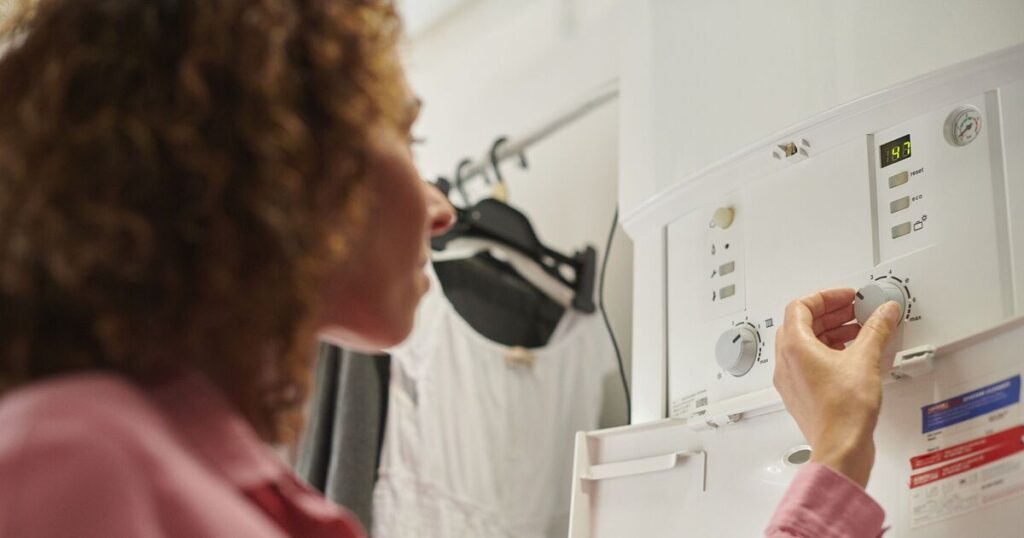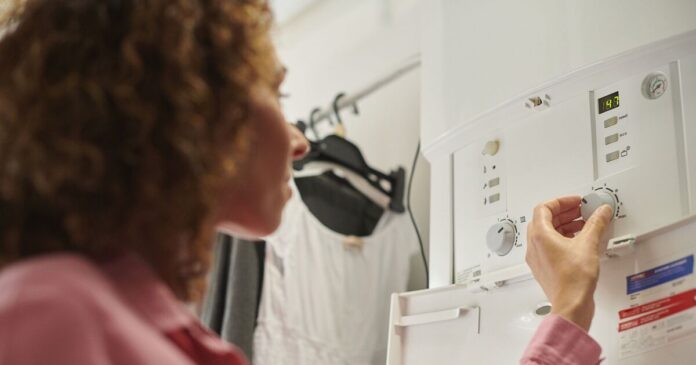
Most UK homeowners remain unaware they could slash their heating bills by simply adjusting the flow temperature on their condensing boiler and turning it down.
Luckily, experts at Dwellow, a leading provider of renewable heating and home upgrade solutions, have shared how this minor tweak can boost efficiency, cut gas consumption, and maintain warmth throughout the home without expensive modifications.
Condensing boilers, which comprise the bulk of contemporary combi systems, are engineered to function most effectively at reduced flow temperatures. However, numerous engineers fit them with flow rates of 70–75°C, considerably higher than most properties actually require.
Ian McLaren, Dwellow co-founder, said: “Condensing boilers stop condensing above 70°C, which can reduce efficiency by around 10%.
“Simply lowering the flow temperature to the lowest comfortable level (often around 50°C) helps the boiler operate more efficiently, uses less gas, reduces running costs, and still keeps your home warm and comfortable.”
Even traditional boilers can benefit from modifications made to the flow, though temperatures must not fall below 65°C in order to guarantee hot water safety and prevent hazards such as legionella.
Ian further adds: “Many homeowners are surprised by how much impact simple adjustments like lowering flow temperature can have. Small changes can make a real difference to bills and energy use, especially in colder months.”
The Energy Saving Trust has seen claims which suggest that by simply adjusting the boiler flow temperature, households could potentially reduce their bills by nearly 9%, although it emphasises that savings will vary based on numerous factors, including the initial setting of your boiler and your willingness to experiment with its flow temperature.
The experts have also provided additional tips for optimising home heating systems this winter including:
Traditional boilers: On/off cycles are most effective in well-insulated homes. Modern condensing boilers are engineered to operate efficiently in short bursts.
Air-source heat pumps: A consistent, low-level temperature yields better performance as heat pumps consume the most energy during startup.
Home insulation: Well-insulated homes can efficiently utilise on/off cycles, whereas poorly insulated homes might benefit from continuous low-level heating.
Smart thermostats: Customise heating by room and time to maximise comfort and efficiency.
The UK government is endorsing heat pumps as a crucial technology to decarbonise heating, aiming for 600,000 installations annually by 2028.
When compared to traditional gas boilers, heat pumps can be three times more energy-efficient, aiding homes in reducing their carbon footprints whilst saving on bills.
According to the Department for Energy Security and Net Zero, smart tariffs alone could result in approximately £100 in annual savings.






















